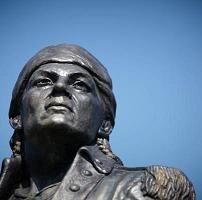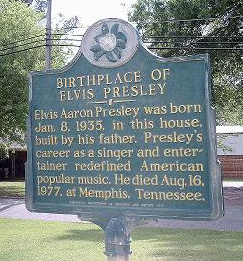
TUPELO – (AP) The city of Tupelo recently held their annual days of remembrance for Chickasaw Nation chief Piomingo.

The ceremony was held the first Monday of October at Piomingo's statue at Fairpark.
Brad Lieb, cultural resources specialist for the Chickasaw Nation's Department of Homeland Affairs, said the statue and the annual commemoration will strengthen the bond between the tribe and the people of Tupelo.
The Chickasaw Nation also celebrated Piomingo Day the second Monday of October, which coincides with Columbus Day.
The Chickasaw Indians lived in semi-permanent settlements in areas that now include Kentucky, Tennessee, Mississippi and Alabama. They first encountered white men, probably members of explorer Hernando DeSoto's gold-seeking mission, in the mid-16th century.
Their stand against white invaders failed in the 1830s and they, along with the Choctaws, Creeks, Cherokees and Seminoles, were forced to move west on the Trail of Tears.
Piomingo was born around 1750 in what was then known as Chokkilissa Old Town northwest of what became Tupelo.
Although no recorded history of the warrior exists, Lieb said, some details of his life are known.
He was reared in a modest family by a Chickasaw father and a Chakchiuma mother and had sought his status as a war leader during a time of great turmoil, Lieb said. Many nations in the late 1700s fought over the land occupied by the Chickasaw.
As a teenager, Piomingo spent about 10 years among Cherokees of Tennessee and earned the name “Mountain Leader,'' Lieb said. He returned to the Tupelo area at the end of the war with the French.
He was one of three Chickasaws to sign the 1786 Treaty of Hopewell, which defined the tribe's boundaries and placed its people under the protection of the United States.
Piomingo served under Gen. George Washington and, in 1792, he earned the Washington Peace Medal. He died in 1798, Lieb said.



